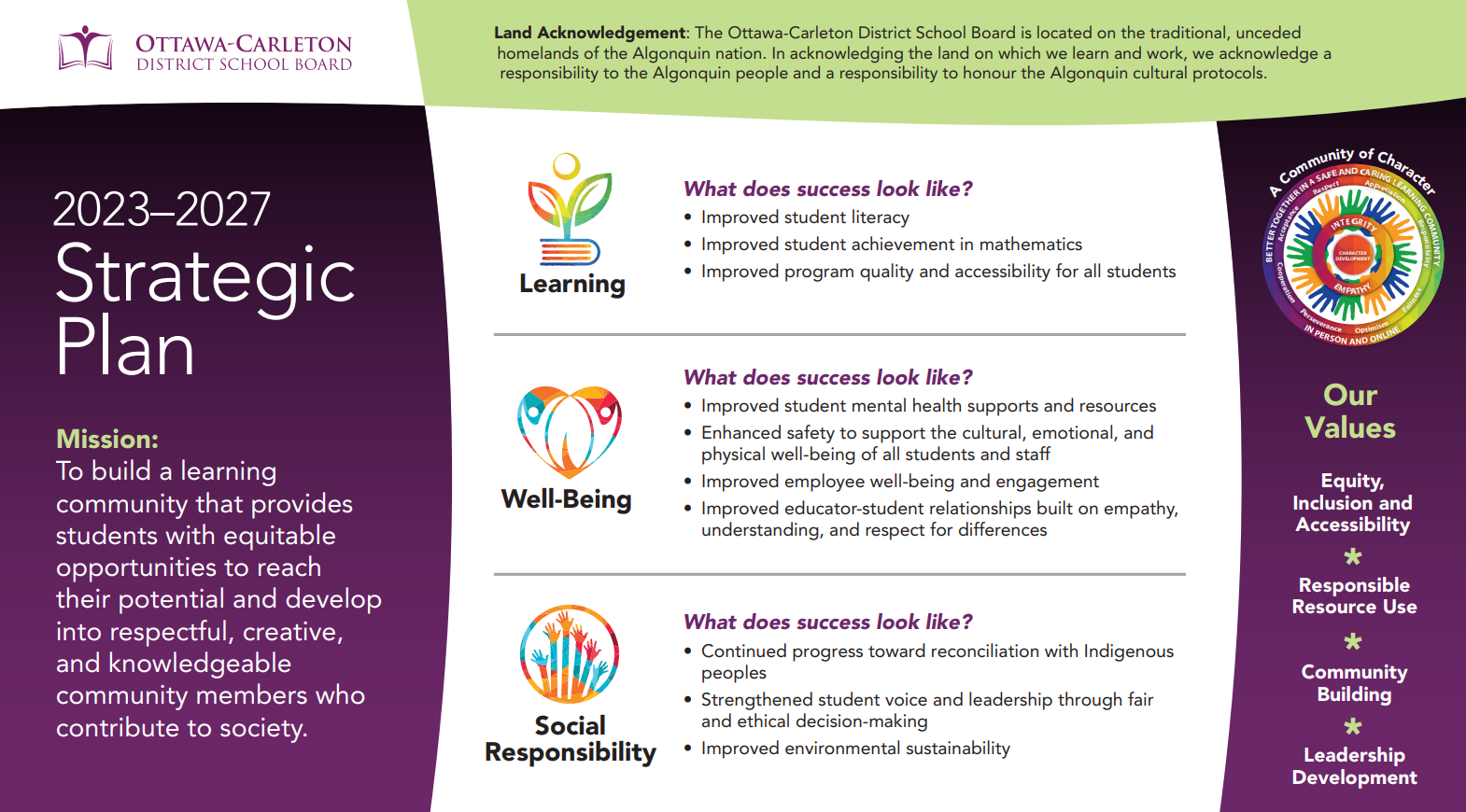Measures of Student Achievement and Success
All students of Crystal Bay have been assessed by physicians, psychologists, and other professional support personnel. Crystal Bay students require individual, specialized academic programming. For some, programming also requires the services of trained medical personnel, occupational therapists, physiotherapists and/or speech and language pathologists. Staff members use assessment data, from numerous sources, to inform and to develop an Individual Education Plan (IEP) for each student. IEPs are strenth-based working documents that outline SMART (Specific, Measurable, Achievable, Realistic and Time-sensitive) goals and learning expectations. A progress report is provided in the fall and then one report card each term is used to provide information on student progress based on achievement and assessment data as outlined in the IEP.
Specialized class programs are also assessed in relation to the Quality Program Indicators developed by Learning Support Services for students with Developmental Disabilities.
School Learning Plan for Student Mental Health and Well-Being

At Crystal Bay we provide a program focusing on functional academics, communication, social life skills and work experience within the school and in the community. Regular field trips, partnerships and bi-weekly swim programming provide rich learning environments. In alignment with the OCDSB 2023-2027 Strategic Plan, Crystal Bay is focusing on the following areas for the 2023-2024 academic year:
Functional Literacy
Students will engage in phonological awareness development (letter name and sound); will communicate with Common Core 20 Vocab; select students will gain an understanding of rhyme by hearing and repeating/identifying rhyming word pairs; will isolate the initial sound in spoken words with focused consonant sounds; will isolate the final sound they hear in a spoken word with focused consonant sounds.
Functional Math
Our focus this year will be on moving students through different elements of Counting Principles:
Stable order (counting in sequential order), One-to-one correspondence, Cardinality (the number of items in a set), Subitizing (the ability to tell the number of objects in a set, quickly, without counting), Order Irrelevance, Conservation, Abstraction, Unitizing. Movement is Magnitude
Well-Being
We will set the conditions for safe, welcoming, inclusive learning environment with focus on equity deserving groups with intersecting identities. We continue to foster student well-being through engagement in play. Engagement in an activity supports a student with their sense of connectedness to others and their sense of belonging which improves their well being. We will work collaboratively with CDA, SLP, MLL Coach, Itinerant Teacher of Assistive Technology, Itinerant Teachers of DHH/BLV to promote student voice -gathering student perspective and choice through verbal and augmentative communication with focus on equity deserving groups with intersecting identities. We also work collaboratively with multi-disciplinary team, central staff (i.e, TERT, IEA, BCBA) and community partners (i.e., DSO, URS, CHEO SBRS) and families/caregivers to support student physical and mental health.
Parent/Guardian Engagement
Encourage continued parent/guardian involvement in the school through Meet the Educator night, Parent-Educator Interviews, School Council, Transition Fair, Education Week Open House, Jays Care Baseball Game, Track & Field.